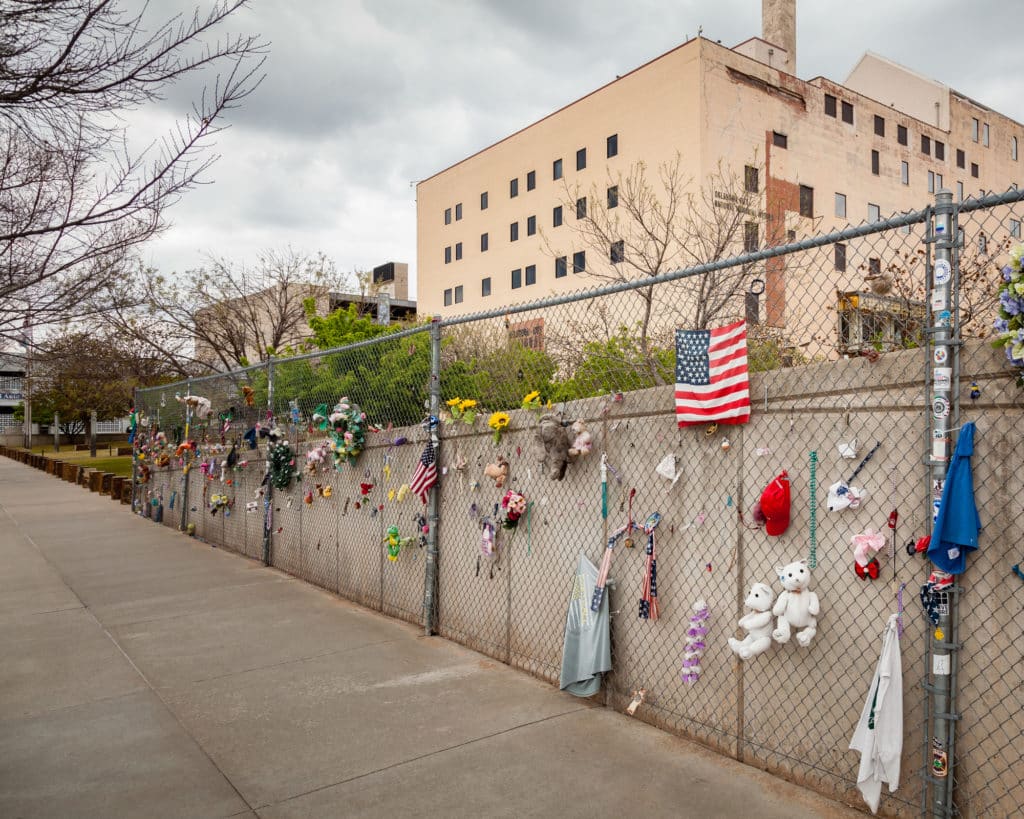Posted in Criminal Defense Lawyers
 Criminal Law Defense Lawyers Washington DC
Criminal Law Defense Lawyers Washington DC
Timothy McVeigh perpetrated the 1995 Oklahoma City bombing, which killed 168 people and injured over 680 others. The bombing was the single deadliest act of terrorism in the United States prior to 9/11 attacks and continues to be the deadliest act of domestic terrorism in the history of the United States. McVeigh was a Gulf War veteran who sought revenge against the federal government for the deaths in the Waco, Texas siege in 1993, the Ruby Ridge stand-off and US’ foreign policy.
Within 90 minutes of the federal building explosion, Oklahoma Highway Patrolman Charlie Hanger stopped McVeigh for driving without a license plate and arrested him for illegal weapons possession. While in custody, forensics linked McVeigh and his accomplice Terry Nichols to the attack. Within days, both men were charged.
On Aug. 10, 1995, McVeigh was indicted on 11 federal counts, including conspiracy to use a weapon of mass destruction, use of a weapon of mass destruction, destruction with the use of explosives and eight counts of first-degree murder.
On February 20, 1996, the Court granted a change of venue and ordered that the case be transferred from Oklahoma City to the U.S. District Court in Denver, Colorado, to be presided over by U.S. District Judge Richard Paul Matsch.
McVeigh’s trial began on April 24, 1997. The prosecution was led by a team of attorneys headed by Joseph Hartzler.
McVeigh tried to persuade his defense counsel, which consisted of six principal attorneys led by Stephen Jones, to argue a “necessity defense,” claiming that his actions were defensible because he believed he was in “imminent danger” from the government, but his attorneys did not use that point.
During the trial, the judge had to place a gag order to prohibit both the defense and prosecution’s attorneys from commenting to the press on the evidence, proceedings, or opinions on the proceedings.
On June 2, 1997, McVeigh was found guilty on all 11 counts of the federal indictment. The jury deliberated for 23 hours.
Prior to his sentencing, McVeigh addressed the court for the first time: “If the Court please, I wish to use the words of Justice Brandeis dissenting in Olmstead to speak for me. He wrote, ‘Our Government is the potent, the omnipresent teacher. For good or for ill, it teaches the whole people by its example.’ That’s all I have.”
On June 13, 1997, the jury recommended that McVeigh receive the death penalty for causing the deaths of eight federal officers leading to a possible death penalty for McVeigh. However, the U.S. Department of Justice could not bring charges against McVeigh for the remaining 160 murders in federal court due to those deaths falling under the jurisdiction of the State of Oklahoma. After McVeigh was convicted and sentenced to death, the State of Oklahoma did not end up filing murder charged against the terrorist for the other 160 deaths he caused.
One of his appeals which was taken Supreme Court of the United States was denied on March 8, 1999. McVeigh also requested his execution be nationally televised execution, but a judge denied that.
For his final meal, McVeigh requested two pints of mint chocolate chip ice cream. He died by lethal injection at 7:14 a.m. on June 11, 2001, at the U.S. Federal Penitentiary in Terre Haute, Indiana. McVeigh was the first federal prisoner to be executed by the United States federal government since Victor Feguer was executed in Iowa on March 15, 1963.
Meanwhile, McVeigh’s accomplices Nichols and Michael Fortier also served time. Nichols was sentenced to eight life terms for the deaths of eight federal agents, and to 161 life terms without parole by the state of Oklahoma for the deaths of the others (including one fetus). In 1997, he was tried by the federal government and found guilty of conspiring to build a weapon of mass destruction and of eight counts of involuntary manslaughter of federal officers. After his sentence of life without parole, the State of Oklahoma sought a death-penalty conviction on 161 counts of first-degree murder in 2000. On May 26, 2004, the jury found him guilty on all charges, but was deadlocked on the death sentence. Judge Steven W. Taylor then sentenced Nichols to 161 consecutive life terms without the possibility of parole.
Fortier was sentenced to 12 years in prison and on January 20, 2006, after serving ten and a half years of his sentence, Fortier was released for good behavior into the Witness Protection Program and given a new identity.
Due to the bombing, the U.S. Congress passed the Antiterrorism and Effective Death Penalty Act of 1996, which tightened the standards for habeas corpus in the United States. Additionally, more security measures were set up to protect federal buildings and stop future attacks.































